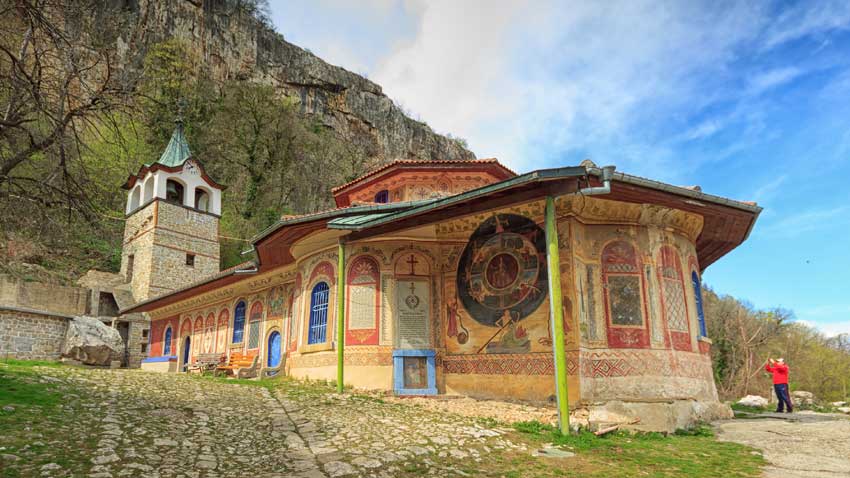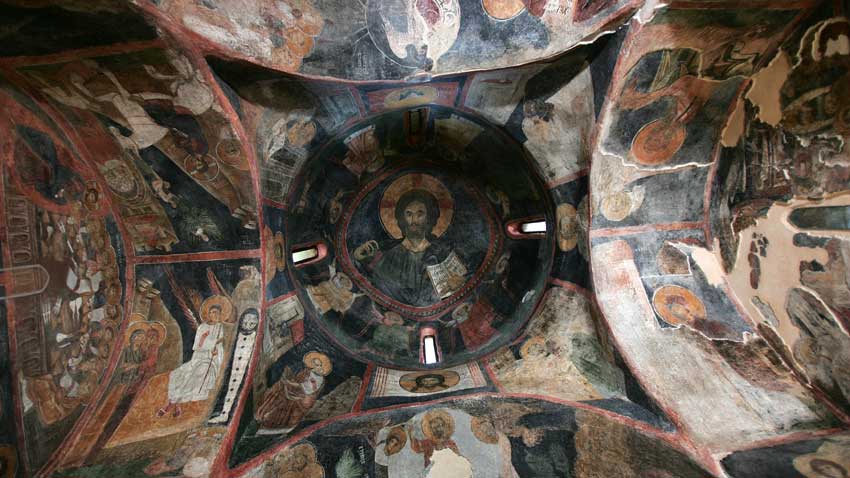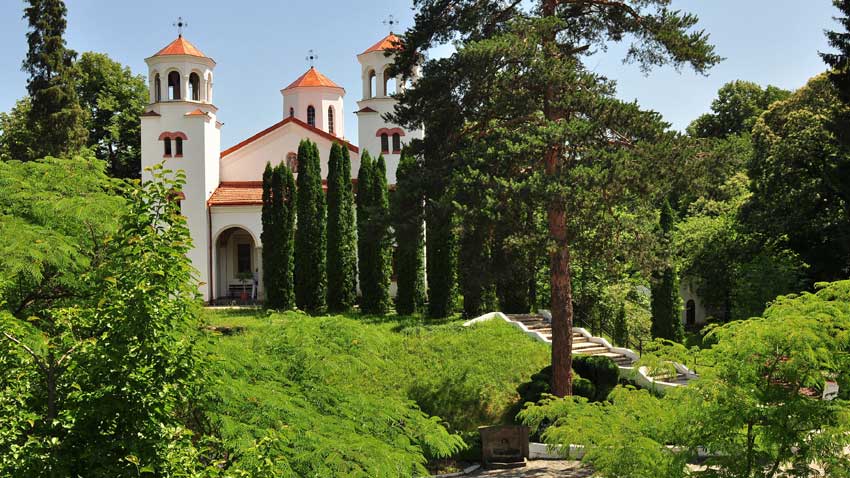Officials of the Holy Synod and the Ministry of Tourism have agreed that monasteries should become more and more accessible for tourism. For this purpose, they discussed the preparation of specialized guides to take visitors around Bulgaria's places of worship. The idea is to enable people to learn more about the spiritual life running there, not only explore their architectural and historical value.

The start of pilgrimage tourism in Bulgaria happened in 1990s. In that period Bulgaria took the thorny path of democracy following its Communist rule. The first specialized travel agencies for pilgrimage tourism appeared which gradually won thousands of supporters. So over the years more and more of Bulgaria's monasteries began to build a hotel part with good accommodation and their guests are not just pious laity, but also ordinary tourists wishing to escape the urban hustle and bustle and indulge in reflection and silence. And some of these unique historical sites have centuries of history. "Let us keep in mind that in this type of tourism speech has a crucial role. For a stone or wall of an ancient temple may come to life right before the eyes of visitors. That is why it is so important to have well-trained guides to excite the interest of people," says Georgi Todorov from the largest specialized agency for pilgrimage tours in Bulgaria. According to him, however, this is a segment that is not yet well-developed, although there is a huge potential. Which is the most beneficial area for pilgrimage tours?

"The Rila monastery, the Rozhen monastery, the marvelous Kremikovtsi Monastery... In general, western and southwestern Bulgaria is particularly rich in preserved religious art", says Georgi Todorov. "I mean the church in Dobarsko and the Zemen monastery. Not to mention the beautiful medieval church St. George near the town of Kyustendil and the Boyana Church included in the UNESCO list. Generally Sofia is one of the great centers of the legacy of the Middle Ages. Unfortunately, many of the temples in the city center were destroyed, but what has remained in the vicinity, this circle of 40 monasteries or the so-called Sofia Sveta Gora (Holy Mountain) is unique."

According to Georgi Todorov, nearly a hundred Bulgarian monasteries scattered throughout the country are of interest not only for conservators and connoisseurs of religious art, but also for the curious travelers. Unfortunately still relatively few of them have been restored and are open to tourists. Apart from the Rila Monastery founded in the 10th century, most popular are the Bachkovo monastery and the Troyan Monastery. According to Georgi Todorov, it is wrong to think that during the five centuries of Ottoman rule the Bulgarian clergy was on the decline.

"Let us take for example the situation in the 18th and 19th century. We know that then secular art in Western Europe was absolutely devoid of spiritualism. And just at this time in the Bachkovski or Rila Monastery true spiritual art flourished, stored and untouched by the secular spirit, the Baroque, the Sun King and all this ultimately secular culture, which was imposed at the time in Western Europe. The works of the first-class painter of the 19th century, Dimitar Zograf, and of Dimitar Hadzhiikonomov from Bansko, which can be seen in the Rila Monastery, are the best example of this."

A survey held among fans of pilgrimage tours shows that they prefer to be shown round a monastery or temple by the priest. That's why currently opportunities are discussed how professional tour guides could be assisted by the clergymen who will show tourists round a monastery or church.
English Rossitsa Petcova
Photos: BTAThe Yantra River rises in the Balkan Mountains at 1,220 metres above sea level and descends northwards, meandering through picturesque valleys and gorges in central northern Bulgaria, crossing the towns of Gabrovo and Veliko Tarnovo. Shortly before it..
The village of Momchilovtsi, the Rhodopes, Pamporovo and the Smolyan region were present with a pavilion at a tourism exhibition this autumn in Ningbo, China. Speaking to BTA, Momchil Karaivanov, a representative of the Bulgarian-Chinese Society..
Cultural tourism accounts for nearly 20 % of the country’s tourism product, according to data from a survey by the Ministry of Tourism. While Bulgaria's image was previously associated mainly with maritime tourism, which made up 70% of the tourism..
The Prohodna Cave, famous for its impressive beauty and the phenomenon of the "Eyes of God", is one of the favorite places for cinematographers . In..
A 4-5% growth in the number of foreign tourists is expected during the winter season. This forecast was made by Ivan Groshev, chairman..

+359 2 9336 661
